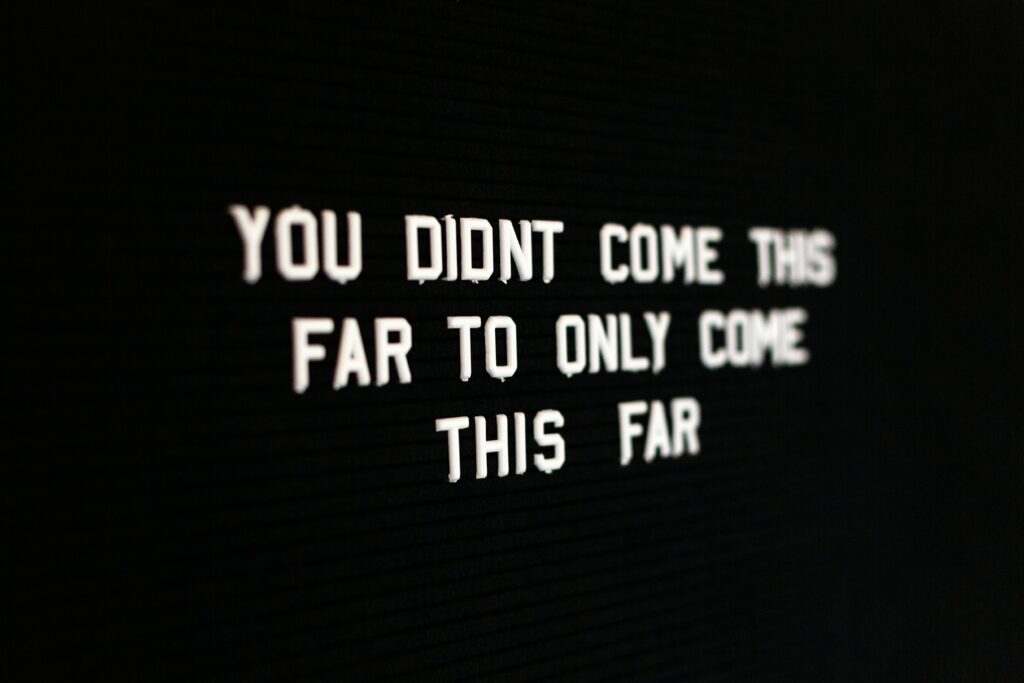
I love a good deadline.
It’s odd, really, that someone like me who’s prone to anxiety is so relieved by the existence of concrete endpoints. Especially if they were created by someone else. Unmovable, unchangeable dates could very well send me into Kenny Loggins’ territory: a highway to the Danger Zone.
But they don’t. A deadline, to me, is a little bit of a reprieve from all that. Alleviates some decision fatigue on my end. Something will either be done by a certain time, or it won’t be. Simple. It’s not up to chance or choice.
The risk factor you DO face when tying yourself to deadlines, though, is knowing you might get to the other side of the deadline feeling like you could’ve done better.
Without the interminability of “I’m done when it’s the very best I can do, and this isn’t the best I can do, so I’ll keep going” there’s a built-in risk that you might very well get to your deadline feeling like you did NOT do the best you could do.
And that feeling can open up some dangerous doors into the Land Of Self-Questioning:
Was that good enough?
What did others think?
Why did I say/do that one thing like that?
How come I forgot that one thing? I know better than that!
What does this say about me?
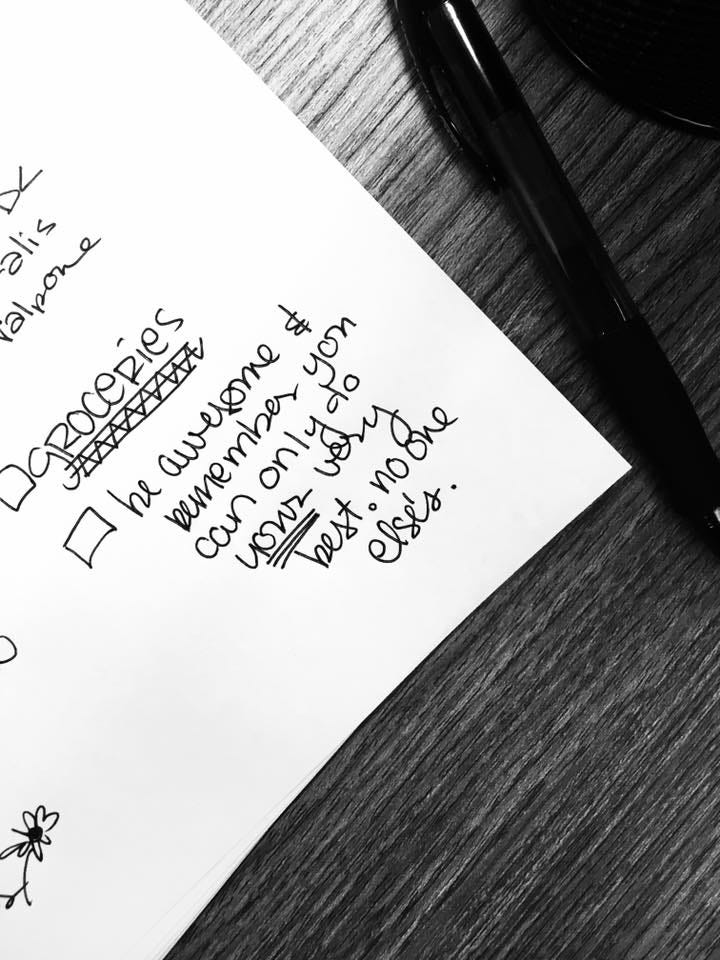
A WASTE OF TIME
Here’s a recent micro-moment of an example of this for you: In addition to my writing work, I’ve been teaching indoor cycling (or spinning, if you prefer) classes for 15 years. You’d think that after all that time, I’d be coasting on a smooth road of self-confidence. Lol.
I taught a cycling class last week that I wasn’t too proud of. It wasn’t bad. It just wasn’t what I knew it could’ve been. I’m sure, logically, that everyone had a great time. And I’m sure, logically, that my brain was just going into overdrive. But logic doesn’t always cut it, and sometimes the emotions of the situation can feel like the (very different) reality of the situation. Even when you’ve teased them apart to know which is which.
My class is a deadline, so to speak. I need to have my programming, my playlist, and my intentions for the class set well before I walk into that room on THAT day and THAT time. Every class is a one-two-three-no-takebacks! kinda moment, where whatever is going to happen will happen based on whatever I’ve worked on (or not). Because I’m on the schedule, I need to show up, and because I care, I need to TRY.
While class last week wasn’t bad, it wasn’t even close to my best. I felt as if I could have been a “better” leader — more present, more cohesive, more specific, more considerate, etc.
Sure, I hold myself to very high standards and have been told on numerous occasions that I “should probably give myself a break.” But when the thing you do is specifically designed to make an impact on others, it’s complicated. I feel a deep sense of responsibility that extends beyond just instruction. These are rooms filled with people who consciously take time out of their day to opt into an experience that *I* am in charge of creating.
As I walked to the subway, my brain started to spiral.
Shit. I feel like I wasted everyone’s time
is what bubbled to the surface of my self-talk.
Now, taking the logical facts of the situation into account, I know this is not true. It was a loud, rowdy, joyful group who whoop’d and woo’d in class and hung around to chat after it ended. I don’t know about you, but when I don’t have a good time somewhere, I don’t whoop and woo, and I certainly don’t hang around any longer than I need to. I get tf out of there without making a sound other than maybe a quick “thanks!” for kindness’s sake.
So. If the emotions of the situation weren’t the reality of the situation, what could I get by teasing them apart even more?
I got this:
Today was not a WIN day.
It was a WISDOM day.
WHAT WISDOM IS MADE OF
I don’t believe in winning or losing when it comes to our experiences. Some people say “I either win or I learn,” which I also like the concept of.
But as someone who has chosen career paths centered around CRAFTSMANSHIP (crafting: a book, an essay, a class, a performance, a workshop, a session, an experience, etc), and whose craftsmanship is based around the intentionality of WORDS, the idea of gaining widsom is even more intriguing to me than gaining knowledge.
Let’s break this down. Dictionary.com has this great distinction:
The primary difference between the two words is that wisdom involves a healthy dose of perspective and the ability to make sound judgments about a subject while knowledge is simply knowing. Anyone can become knowledgeable about a subject by reading, researching, and memorizing facts. It’s wisdom, however, that requires more understanding and the ability to determine which facts are relevant in certain situations. Wisdom takes knowledge and applies it with discernment based on experience, evaluation, and lessons learned.
And what is wisdom is made of? Material.
Without the material gained from from the moment, the application isn’t necessarily built in.
Basically: Gathering MATERIAL and putting it into action is what ultimately creates WISDOM. And WISDOM creates WINS.
Material, in this sense, is what I’m defining as facts, information, and ideas you use in order to build wisdom and craft a win of the future.
Writers, actors, speakers, and creators often use the word “material” to talk about the stuff they use to create some kind of tangible output. Storytelling is their medium.
In this sense, think of material as the stuff you use to tell a new story to yourself, about yourself.
An important note. If you’re like me, you might have noticed that some people, particularly those professional storytellers I mentioned above, can be pretty callous when it comes to the use of the word “material.” Like, something bad or embarrassing will happen, and they’ll dissociate in order to create. This can lead to not only a lack of humanity/respect for the parties involved (I feel like I remember a TV storyline like this, where a friend of the main character yelled “WE’RE NOT ALL JUST CHARACTERS IN YOUR SILLY LITTLE NEWSPAPER COLUMN” or something like that, lmk if you remember this from somewhere too!!), but moreover, a sort of emotional bypassing. When what you experience is distilled down to mere fuel for whatever it is you’re creating.
This is how you end up in a position of observing your life at a distance instead of living it.
This is NOT what I’m getting at.
I went back and forth as to whether I should just nix the word “material” altogether in this piece. But what I’m talking about here is NOT just learning something new or jumping straight to wisdom. It’s way more tangible/active than that, doesn’t stop at the learning, and doesn’t skip steps.
Maybe you’d prefer to call it “information” instead of “material.” Whatever you call it, in the case of this piece, I am talking very specifically about the stuff you consciously use to craft a future win — the stuff that, when used over and over, begets ACTIVE WISDOM, not just passive knowledge.

Now that we’re on the same page: I gathered some material from my WISDOM DAY — facts, information, and ideas — that I plan to use in order to create a WIN DAY for myself in the future. Maybe the material I gathered can help you craft a WIN DAY in your own future as well.
Here we go:
- Prioritize the feeling.
If you’re trying to decide between two things, choose the thing that creates the feeling you intend to create — even if you think other people might “like” the other thing better. They rarely do. Moreover, while you can never fully control the impact of what you create, if you’re not leading with a solid intention, the impact is waaaaay more up to chance and you won’t have anywhere to pivot from/grow from. - Diversify your opportunities for wins.
Make sure to fill your week with micro-milestones and opportunities for wins, so that your sense of “winning” doesn’t depend on just one moment and one thing. It’s great to feel a big sense of pride in whatever you do, but when you’ve been banking on one win and one win only and it doesn’t happen, the effects can be more than demoralizing. - The more proficient you feel, the more important it is to practice.
I know that when I feel I’m pretty good at something, I have a tendency to rest on my so-called laurels. I figure that I know what I’m doing, and have been doing it for quite some time with a good amount of success. *And this is when I end up screwing something up and then going into the land of self-questioning.* It seems counter-intuitive, but the more you think you “know,” the more important it is to cultivate a beginner’s mindset and hunger for learning. You get to build confidence by giving yourself consistent proof that you know what you’re doing, and you get to keep your humility at healthy levels by reminding yourself there is always more to learn (and you’re not above learning!). - Don’t push your meh moments aside — probe and see what might be useful.
If I had chosen to “ignore” my feelings/reactions or talk myself out of them, not only would I not be writing this, but I wouldn’t have been able to come to any of these four conclusions that will ultimately serve me in getting a future WIN in the books. This is why I encourage people to find the information within their negative self-talk instead of writing it off or jumping to replacing it with positive phrases. That information is important, and can maybe lead to a shift that lasts. But you’ll never know if you keep creating distance from what makes you uncomfortable.
THE REAL POWER OF DEADLINES
Yep, we’re back here: I LOVE deadlines. Whether it’s a class I’m teaching or workshop I’m leading, a speech I’m giving or a manuscript that’s due, the guardrails a deadline gives me ENSURE I’ll get the building blocks of either a WIN or of WISDOM.
And here’s the kicker:
Without a deadline, I GET NEITHER.
When I tell myself I’m going to wait until my pitch is unignorable, until my writing is groundbreaking, until my home is pristine, until my resumé is beefed up, until my whatever is however, etc etc etc, all I ensure is that I’ll neither be boosted by a win or enriched by wisdom.
All I ensure is that I’ll stay in this limbo-space where what I want will always be far away from me.
All I ensure is that I’ll stay floating, stuck in a directionless void waiting for something imaginary to take shape.
And all I ensure is that I’ll keep working and working and working and waiting and waiting and waiting. Stuck thinking that there will always be more I can do, because I’ve been building a habit of telling myself there is always more I can do.
Open-endedness is my friend in some cases, but not here.
I don’t know about you, but even if I don’t win, I would rather go after something meaningful and gain material to use later on. I would rather experience a whole lot of somethings than a whole lot of nothings, even if some of those somethings will inevitably bring up tough emotions. I would rather play a complicated, beautiful song than hold one single note into infinity.
I do well with deadlines imposed by others because I’m less tempted to try and push them, but this month, I’m hoping to set and stick to more deadlines that I set for myself as well. Not in a super-rigid way, of course — I don’t want to set myself up for burnourt or overwhelm. If I miss a deadline, I won’t be too hard on myself, and I’ll also interrogate why it happened. (See? Even the act of setting deadlines creates a win vs. wisdom payout!). But I’ll set deadlines for myself in a way that sets me up for a string of wins and material and wisdom and life.
Maybe this month, we can do it together. Maybe we can create some deadlines of our own, and give ourselves as many opportunities as we can to win. The beauty of working toward a deadline is: there’s no waiting around. Something will happen.
If at the end of a deadline is either a win or wisdom, and wisdom builds wins, it’s all a win in its own way.
Never miss a post, pod, or update. Subscribe to WANT to get all the latest directly in your inbox monthly.
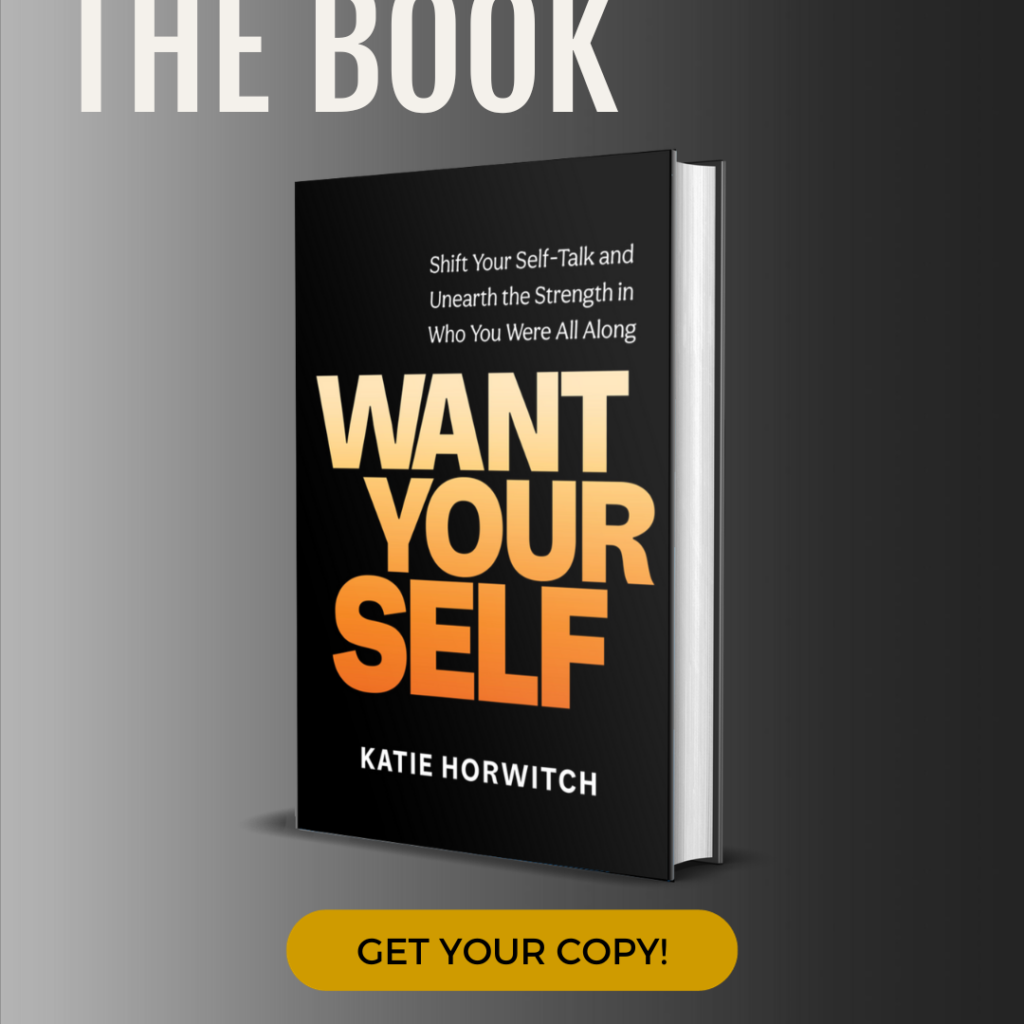

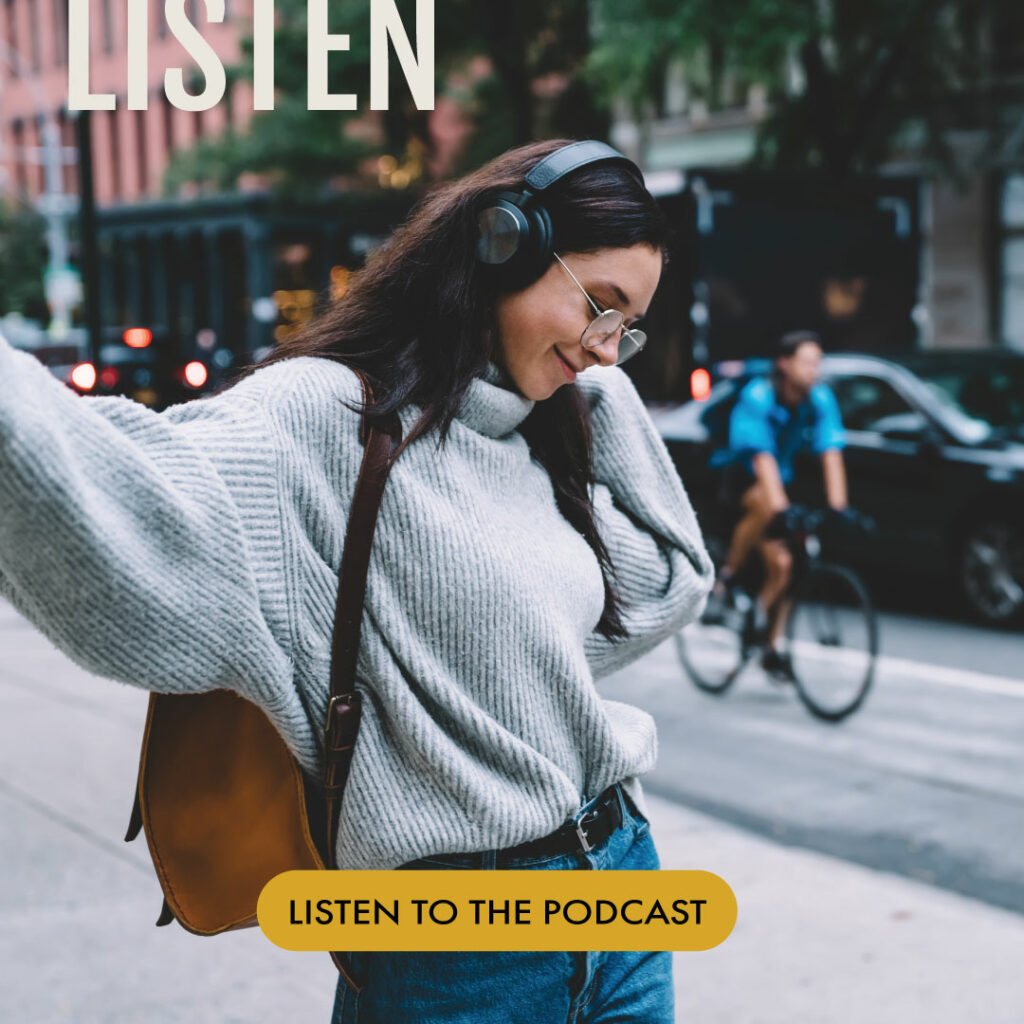
0 Comments